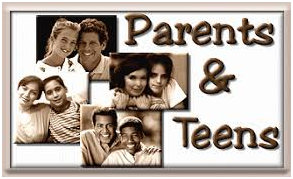We are teens…just let us be….
A mother of a teenager and an academician – a close observer of teens, their tantrums and their dilemmas – Ma, what to wear – frock or jeans, which stream to take – where to go for partying, which parlor to go to for a hair-do, which project work to embark on first… the list is endless. And they end up taking the road not taken… the other option which we don’t advice. I tell my friend, and she has the same story to tell. Teens are teens everywhere – in any and every part of the world.
Teenagers often scuffle over dilemmas – ethical / cultural / moral / fashion / where to spend money / what courses to take – anything and everything under the sun. The reason – they lack the experience, wisdom and experience to come up with the right options. because they aren’t always wise and experienced enough to make good choices. Few lucky ones have their inner conscience that does the job for them.
Teenagers feel they are making tough decisions and so juggle to choose the right path. The trodden path, to them is not appealing and the untrodden, highly challenging, and most of the time, there is no middle path. Peer pressure often makes it more difficult to choose the right path.
Moral Dilemmas for Teenagers
Unlike adults, teenagers don’t have the maturity levels to deal with numerous moral dilemmas that confront them as they grow up. With support, love, care and holistic approach, teenagers can be taught to handle tricky situations.
Let’s have a broader look at the daily dilemmas that teens of today seem to face:
|
The Anxious Teens
|
 |
- Bodily changes
- The cute, innocent, cherubic faces giving way to beard, moustache, body hair and acne, make the teens appear fidgety – to add to it, the hormonal changes.
- Academics
- Even during school days, teens have this dilemma related to academics. Be it choosing the viable options, the colleges, at time cheating in the exam to land into desirable grades, turns out to be a huge moral threat and fills them with guilt and remorse, only to land them into misery.
- The growing stages – increase in syllabus – the number of projects, tests, co-curricular activities, change in curriculum, sports day, annual day…along with these, a few more areas that tickle their ribs and tantalize their senses open before them – dating, hanging out, pursuing hobbies. Play, internet, you tube all seem to allure at the same time.
- Lying
- This is the age when they forcibly develop the habit of lying. Knowing the fact, that they have followed certain bad practices, like bunking classes, smoking, or even to hide obscene material, they camouflage themselves and start fibbing, with the good intent of not hurting parents. It goes to the extent of becoming a habit where lying comes to them very easily, without putting much of a thought. Scenarios when the teen is scared to show the marks, they go to the extent of forging the parents’ signatures.
- Snitching and tattle-tailing
- Teenagers resort to stealing and snitching because they are afraid to ask parents for more.As adults, we ask children to let the beans out of the bag, when they are bullied, but they hesitate for fear of being labelled a tattle tale.
- Risk-Taking Behavior
- Due to growing up challenges, and the huge peer pressure, at times teens act irrational, leading to inappropriate behavioral patterns.
- Identity Quest
- Teens wish to be recognized and make a place for themselves in the society. If they stick to moral values, they are rebuked by peers and if they resort to being funky and free, they are reprimanded by parents for violating ethics, if they wish to have fun and frolic, they are admonished by teachers for violating the rules and regulations. The search for identity is a constant threat to a troubled teenager. If they want to keep away from all the noise and din – they are labelled ‘loners’. It is a conflicting situation everywhere. This makes them aggressive and defiant – this is the saga of a troubled teenager.
- Teen Confusion:
- There is media, there are books in school, there are peers, there are parents, and teachers, all preaching different ideologies. The teen is confused. What to learn, what to unlearn, what to choose and what not to choose. The tens are considered children on one hand, and suddenly as adults. They feel they have lost their identity as kids, and need to carve their own life and their own path as adults. And in this transition, the teen seems lost and forlorn.
- High Parental Expectations:
- Parents who can’t fulfil their dreams, rub it on their teens, irrespective of the core interests of the teens. They want the teens to be good at everything – manners, behavior, dressing, academics, societal and co-curricular. This tantamount to building pressure in those little brains.
- This comes in the way of their independent thinking and progress. They feel thwarted and unloved, and come under high pressure.
- Peer Pressure
- On top of this, is the peer pressure. To be accepted among peers, trying to gain acceptance and popularity. It is peers who influence teens the most – be it inclining them towards unhealthy habits like cheating, lying, drugs, alcohol, smoking or drinking, or even making academic decisions like choosing colleges, courses etc., Teens want to pose this cool look and consider these habits as drinking beer, hanging out, going out for fags to be a criterion for sporting that cool look, and do not actually bother about the nasty outcomes.
- Learning New Methods:
- Be it new courses, music, dance or fidgeting with gadgets. Teens tend to experiment, explore and constantly learn.
Health and wellness – Physical and Emotional:
Teens start developing poor eating habits, sleep less, eat high calorie junk food, get addicted to mobiles, tend to become either thin or obese. This is the reason for deficient performance.
Emotional health due to hormonal changes in the body.
Inner Conflicts in Teen Minds – Parent’s Role:
 |
THE PARADIGM SHIFT |
Teenagers are prone to all sorts of attractions and distractions in the growing stages. They display a reckless attitude and question values and principles.
Give them the necessary moral support and understand that they are undergoing a difficult stage of transformation – physical, psychological, moral and ethical.
We, being responsible dutiful parents, need to impart lessons on social ethics, and teach the teens life lessons.
Analyze, analyze and analyze and then react: Have a bird’s view of the situation and look at the turn of events in a holistic manner. Only then would you be a moral arbitrator and transfer values in a meaningful way.
The onus does not rest only with the parents. Teens spend most of their time in schools and colleges. Teachers also need to address any unwarranted and unwanted outcomes of teens in a friendly manger and prepare them for a positive mindset, with a positive outlook.
Teach the art of analyzing to your teens and help them make decisions. Allow them to make their own SWOT (Strength, weakness, opportunity, and threat) analysis and reach a positive conclusion. Let them me responsible for their acts and decisions. This will also help them not to shift the blame game and to debate, decide and do.
Be appreciative and don’t be opinionated. Genuine appreciation but NO awards must be the order of the day.
Ensure the atmosphere in the home is morally supportive, such that they do not feel restless and exhibit normal behavior patterns, rather erratic trends.
Ingrain moral values and principles. Make them read good books, listen to good music and foster healthy and happy habits.
You are the role model. Display with examples. Gift them the freedom of choice. If it is unbecoming, explain with love and reasons. Rather than ordering “Don’t smoke!” Show them the visuals on how smoking affects the lungs.
Teach them the difference between fact and fiction – real life and reel life.
Impart eeffective learning skills to these teenagers. Teach them empathy and sympathy along with moral civic sense.
Parents need to strike the right balance, understand and help kids in this metamorphosis, reduce expectations and most of it spend time with them.
Pack healthy and nutritious snacks/ lunch for them.
Keep the lines of communication always open. Be friends to them. Avoid should statements.
Be willing to listen to them – their woes, worries, achievements and excitements. Always lend an empathetic ear and an encouraging mouth.
Involve them in decision making.
If you find them weak, or depressed, talk to them.
Most importantly, let them know you are their best friend, their pillar of support and that you care…immensely for their well-being and overall development.

